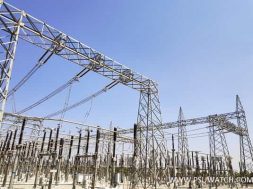
1. INTRODUCTION
1.1 The Electricity Act, 2003 (the “Electricity Act“) was enacted to consolidate the electricity laws in India. While the Electricity Act facilitated significant private investments, market development, and adoption of transparent tariff mechanism etc., the power sector has been facing various developmental hurdles for some time. Consequently, to address various issues which have been highlighted by the industry and to further reform the power sector, the Ministry of Power (“MoP“), Government of India, released the draft Electricity (Amendment) Bill, 2020 (the “Amendment Bill“) on April 17, 2020 to amend the Electricity Act. The MoP has requested the stakeholders to provide their comments and suggestions on the Amendment Bill within 21 (twenty one) days from the date of release of the Amendment Bill (i.e. by or before 8 May, 2020).
2. KEY AMENDMENTS PROPOSED TO THE ELECTRICITY ACT
A summary of the key proposed amendments is set out below.
2.1 Improving Enforcement of Contracts
- Establishment of the Electricity Contract Enforcement Authority (“ECEA”): While various provisions of the Electricity Act relate to the sale and purchase of electricity, there are no specific provisions existing in the Electricity Act dealing with the issues under power purchase agreements (“PPAs“) executed for such sale and purchase of electricity or contracts relating to transmission. In order to improve enforceability of PPAs and contracts relating to transmission, and to ensure time bound adjudication of disputes under PPAs/transmission related contracts, the Amendment Bill proposes to establish the ECEA to adjudicate upon the matters regarding specific performance of:
-
- PPAs between a generating company and a licensee or between licensees; and
- contracts related to transmission of electricity executed between a generating company and a licensee or between licensees.
- ECEA is proposed to be the sole adjudicating authority with original jurisdiction over enforcement of performance obligations under PPAs/contracts relating to sale, purchase and transmission of electricity to the exclusion of the Appropriate Commission1, whose jurisdiction is proposed to be clearly limited to determination of tariff or any other dispute regarding tariff. According to the MoP, the ECEA is required to dispose of the matter within 120 (one hundred and twenty) days from the date of its receipt. Under the Amendment Bill, it is proposed that the orders of ECEA will be executed in the same manner as in the case of a decree of civil court. Further, an appeal against the orders of ECEA will be heard by the Appellate Tribunal for Electricity (“APTEL”).
- It appears that if the Amendment Bill is enacted, agreements for sale, purchase and transmission of electricity involving a licensee cannot provide for arbitration (which is generally considered as acceptable terms to the international investor community).
- Payment Security Mechanism for Scheduling of Electricity: A robust system to enforce compliance with payment security mechanism has been a major pain point for the power industry and has led to a huge pool of unpaid dues to generators – this has caused a lot of stress in the sector. The Amendment Bill provides that “no electricity shall be scheduled or despatched under such contract unless adequate security of payment as agreed upon by the parties to the contract, has been provided“. The dispatch of electricity is being undertaken by the load dispatch centre through the process of scheduling – the Amendment Bill proposes to empower the load dispatch centres to administer the establishment of adequate payment security mechanism before scheduling dispatch of electricity as per the relevant contracts2. Creation of such a payment security mechanism is proposed to be made mandatory keeping in view the sanctity of contracts, unless it is waived by the parties to the contract themselves.
2.2 Promotion of Renewable Energy and Hydro Power Sector
The Amendment Bill proposes that the Central Government (in consultation with the State Government) will prepare and notify, from time to time, a National Renewable Energy Policy (“NRE Policy“). The formulation and notification of the NRE Policy is intended to promote the generation of electricity from renewable sources of energy. The Amendment Bill proposed a minimum fixed percentage (as prescribed by the Central Government) of electricity from renewable and hydro sources of energy should be purchased – specifically, the proposed amendment to Section 86(1) (e) of the Electricity Act makes it mandatory for State Commissions to follow directions given in NRE Policy for prescribing a minimum percentage of purchase of electricity from renewable and hydro sources of energy. Further, as hydro power has been recognised as the renewable source of energy, the Amendment Bill further proposes to expand the scope of renewable power purchase obligations to include hydro sources.
2.3 Tariff and Cross Subsidy
In respect of the retail tariff, the Amendment Bill seeks to ensure that such retail tariff is determined by the Appropriate Commission to reflect the actual cost or fair cost of the power which is to be supplied in order to ensure financial health of the distribution companies. In order to achieve this, the Amendment Bill provides that the Appropriate Commission should set the tariff for the retail sale of electricity without accounting for any subsidy, which, if any, under Section 65 of the Electricity Act, should be provided by the relevant government directly to the consumer. As per the Amendment Bill, it is proposed that the tariff should reflect the cost of the supply of electricity and reduces the cross-subsidies levied in the manner provided under the tariff policy.
2.4 Open Access
Under the Electricity Act, open access can be granted to a consumer on the payment of surcharge and wheeling charges as determined by the relevant State Commission3. However, such charges do not include charges for intra-state transmission and inter-state transmission of power. In view of this, the Amendment Bill proposes to add such transmission charges, wherever applicable, to the existing charges (i.e. surcharge and wheeling charges). Further, it is proposed under the Amendment Bill that open access surcharge and cross-subsidies will be “progressively reduced” by the State Commission in the manner provided in the tariff policy – Section 42 of the Electricity Act envisaged reduction in cross subsidy as per discretion of the relevant State Commission, however, the Amendment Bill seek to take away discretion of the State Commission for determination of cross subsidy and post amendment the State Commission will be bound to follow the mandate of the Central Government.
2.5 The Distribution sub- licensee and Franchisee:
The Amendment Bill proposes that distribution licensees, with the permission of the relevant State Commission, can recognise and authorise a person as “distribution sub-licensee” (distinct from the “franchisee” model already available under the Electricity Act) to distribute electricity on its behalf in a particular area within its area of supply – however, the original distribution licensee will remain the licensee and will ultimately be responsible for ensuring the quality of the distribution of electricity in its area of supply. It is also proposed that such distribution sub-licensee is not required to obtain a separate license under Section 14 of the Electricity Act from the relevant State Commission.
Click here to continue reading …
The content of this article is intended to provide a general guide to the subject matter. Specialist advice should be sought about your specific circumstances.















